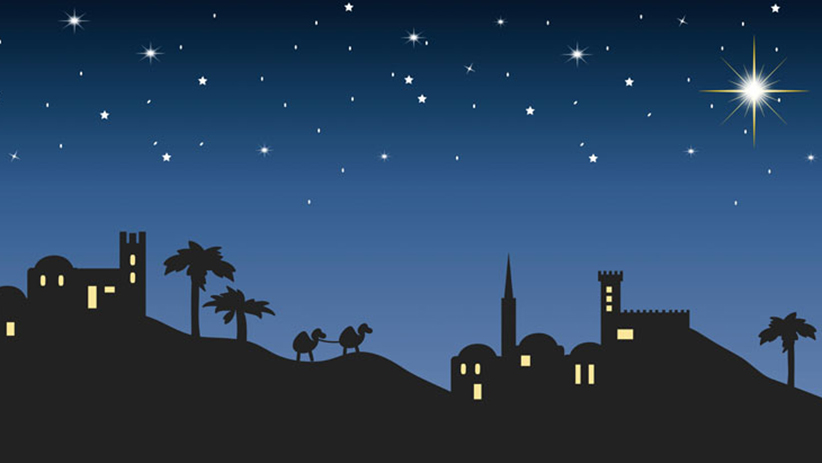My reed desk these days
“In the same way, the Spirit helps us in our weakness. We do not know what we ought to pray for, but the Spirit intercedes for us through wordless groans.” Romans 8:26
My prayers usually go something like this: “Lord, thank you for this day. Please ______________. Amen.
Let’s be honest: this is the gussied up, safe-for-work version. Sometimes I do not even manage to utter thanks before diving into my needs. And it occurs to me, am I really asking for help or am I just venting? I often wonder, if my prayers were transcribed, would they read just like a big worrying session with “Dear God” and “Amen” as bookends?
Lately my prayer life has been pretty dismal. It might be the sleeplessness of having an 11-month old or the fact that things are mostly “ok” at the moment, but I’m lucky if I mutter a quick prayer for someone who is sick, like I say I will. Sometimes I just don’t know what to say to God.
Along with my tenuous prayer life, I also haven’t felt like writing or practicing. Every time I sit down to start, I’m met with this same emptiness and drought. All the music that needs to be learned, the blinking cursor, they mock me.
Feeling blocked is something I’ve spent a great deal of time thinking about over the last few years. After Juilliard, I felt more blocked than ever. Since then, I’ve been leading the Artist’s Way Creative Clusters at Grace, going through Julia Cameron’s amazing book over and over. I just started my fifth time through the process. It focuses on the healing of our creative impulse through spiritual practices of journaling, self-reflection, and self-care. It teaches that God is the source of all our creativity, that creativity is God’s will for our lives, that everyone is an artist, because God is one and we were made in God’s image. I like it because it requires discipline: participants must journal three pages stream-of-consciousness writing each morning, but it is also whimsical and fun, as it requires everyone to take their “artist within” on a date each week.
I’ve seen the book change people’s lives, not just creatively, but spiritually, too. Just this week one of the participants, after only two weeks of class, sent me a text that said: “This book is really transforming me from the inside out.”
So then, you can see why it worries me when I start to feel dry again, after all this caring for my “artist child,” like Julia Cameron has suggested.
In the midst of this conundrum, I came across an answer. Cameron fills the first week’s reading with statements you are supposed to repeat to yourself throughout the course. The one that struck me this time was: “My creativity heals myself and others.” Maybe the key to feeling unblocked could be found in the act of creating itself.
So after a few more days of drought, I decided to sit down and make something.
One thing that felt manageable (or perhaps another way to procrastinate writing and practicing) was to make some oboe reeds: which, if you know anything about making oboe reeds, it’s not the most creative of processes. But, even so, I put some music on, created an atmosphere. I watched my hands as they followed through the familiar process of scoring, shaping, tying, scraping—a process I have done thousands of times during my twenty years of playing oboe. And sure enough, I started to feel the Holy Spirit, the creative genius, inspiration, tapping me on the shoulder, inviting itself into my process of writing and music-making.
I started to feel excited about the reeds, about the way they might sound, about the music I could play with them. The cane was a beautiful yellow color and felt smooth against my dry, winter-worn fingers. I thought of all the people who had touched the cane before it arrived in my hands, what animals and weather patterns had crossed its path while it grew in the wild. I thought about writing this paragraph. I realized that this process was helping my breathing to slow down. It was helping me look at the world like it could be, to be grateful for all that I have, to dream of making beautiful music and teaching others to do so.
There’s this part in the Artist’s Way that I have underlined:
“God has lots of movie ideas, novel ideas, poems, songs, paintings, acting jobs. God has a supply of loves, friends, houses that are all available to us. By listening to the creator within, we are led to our right path. On that path we find friends, lovers, money, and meaningful work. Very often, when we cannot seem to find an adequate supply, it is because we are insisting on a particular human source of supply. We must learn to let the flow manifest itself where it will—not where we will it.” (Julia Cameron, “The Artist’s Way: A Spiritual Path to Higher Creativity,” page 92.)
Once I finished the reeds, I started writing and then praying, and it all started to feel simultaneous, pouring forth like I had finally tapped a well with water.
Just by sitting down to make reeds, opening the case, starting to type, I was met there by my Creator. And this act of creativity did start to heal me from the inside out.
And here’s the thing: we don’t even have to make anything the world calls “good” for this meeting to occur. God wants our ranting and venting, our adolescent poetry, our out-of-tune long-tone exercises after a few weeks off. God wants to hear all these songs, all these prayers, sung by his beloved children.
When we seek God as creator, as source, we can count on God to appear to show us the way to our right path. There’s no pressure to sit down alone and manifest the perfect reed or blog post. All that is required is an openness to collaborate with the source of all the good ideas, eloquent paragraphs, and perfect reeds.
And so it is with prayer. When we learn to let the flow of our prayers manifest where God wills them—Thy will be done—when we allow the Spirit to intercede on our behalf, to pray for what we would pray for if we knew what God knows, our wordless groans are turned into beautiful symphonies of communion with our maker, much more eloquent and satisfying than we could ever compose ourselves.
We just have to show up to the desk.















